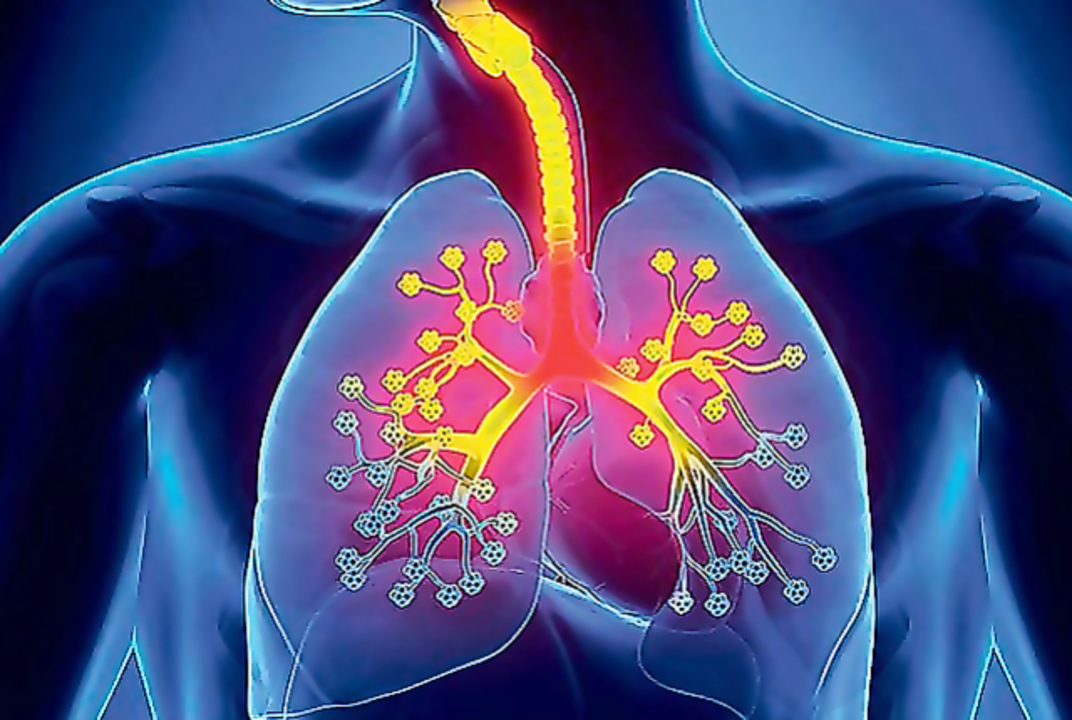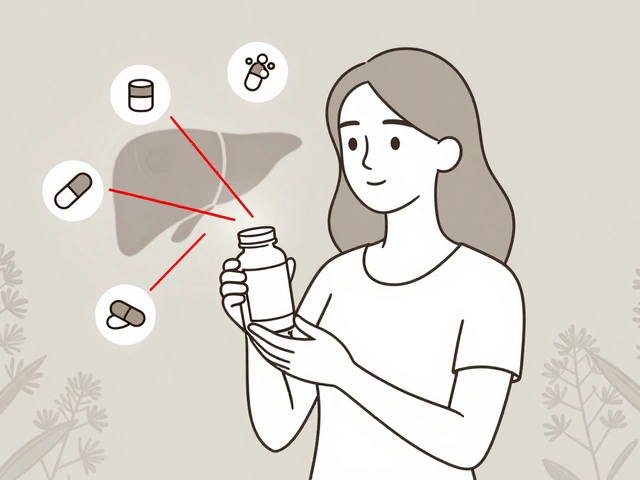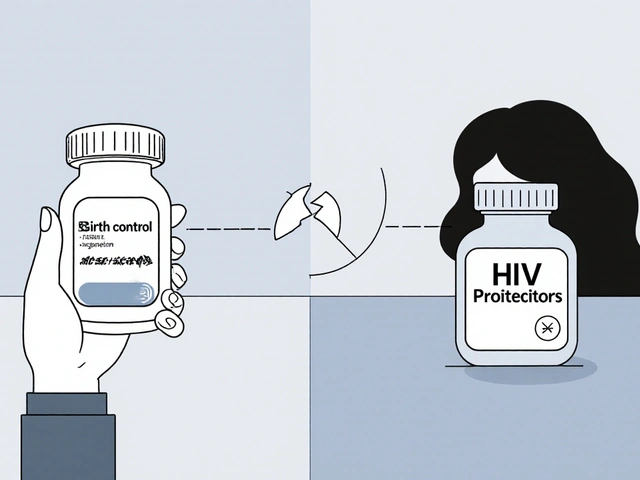Preparing for Your Trip: Preventive Measures
When planning a trip, especially when you have bronchitis, it's crucial to take preventive measures to avoid aggravating your symptoms. Start by scheduling a visit to your doctor before you leave - they can advise you on the best ways to manage your bronchitis while on the go.
Make sure to pack all your necessary medications, such as inhalers, cough suppressants, and any prescribed antibiotics. It's also a good idea to bring a refill or two, just in case you run out during your trip.
Another essential aspect of preparing for your journey is to research your destination's climate and air quality. If possible, try to avoid places with high levels of air pollution or extreme weather conditions, both of which can exacerbate bronchitis symptoms.
Lastly, consider purchasing travel insurance that covers pre-existing medical conditions. This way, if your bronchitis symptoms worsen during your trip, you'll have access to the medical care you need without worrying about the cost.
Staying Hydrated and Nourished
Staying well-hydrated and nourished is essential for managing bronchitis symptoms, especially while traveling. Drinking plenty of water helps thin the mucus in your airways, making it easier to cough up and clear your lungs. Aim for at least eight glasses of water per day and consider carrying a refillable water bottle with you to ensure you always have access to water.
Additionally, eating a healthy diet rich in fruits, vegetables, whole grains, and lean proteins can help boost your immune system and keep your body strong. Try to avoid processed foods, caffeine, and alcohol, as they can dehydrate you and worsen your bronchitis symptoms.
If you're on a long flight or journey, be sure to pack healthy snacks like nuts, fresh fruits, or granola bars to keep your energy levels up and prevent dehydration.
Finally, don't forget to take any vitamins or supplements recommended by your doctor to support your immune system and overall health during your trip.
Managing Stress and Getting Enough Rest
Traveling can be stressful, and stress can exacerbate bronchitis symptoms. Therefore, it's essential to practice stress management techniques while on the go. Consider incorporating activities like deep breathing exercises, meditation, or gentle stretching into your daily routine to help reduce stress levels.
Getting enough rest is also crucial for managing bronchitis symptoms. Aim for at least seven to eight hours of sleep each night and try to maintain a consistent sleep schedule, even when you're in a different time zone. If you have difficulty sleeping while traveling, consider using earplugs, an eye mask, or a white noise machine to block out distractions and create a more comfortable sleeping environment.
When planning your itinerary, it's essential to be realistic about how much activity you can handle each day. Avoid overloading your schedule and ensure you have time to rest and recover between activities.
Lastly, remember to listen to your body and give yourself permission to take breaks or adjust your plans if you're feeling unwell or overwhelmed.
Protecting Yourself from Environmental Triggers
Environmental triggers like allergens, air pollution, and smoke can worsen bronchitis symptoms, so it's important to protect yourself as much as possible while traveling. If you're sensitive to allergens like pollen or dust, consider packing allergy medications like antihistamines and nasal corticosteroids.
Additionally, wearing a face mask can help filter out pollutants and irritants in the air, reducing your exposure to potential triggers. Choose a mask with a high filtration rate, like an N95 or KN95, for maximum protection.
If you're staying in a hotel or Airbnb, request a non-smoking room and consider bringing your own pillowcase to minimize your exposure to allergens. You can also use a portable air purifier to improve the air quality in your accommodations.
Finally, be mindful of the activities you participate in and the places you visit during your trip. Avoid exposure to smoke, heavy traffic, or industrial areas, as these can worsen your bronchitis symptoms.
Knowing When to Seek Medical Help
Despite your best efforts to manage your bronchitis symptoms, you may still experience flare-ups while traveling. It's essential to know when to seek medical help and have a plan in place in case of an emergency.
Some signs that you may need medical attention include difficulty breathing, chest pain, a high fever, or a cough that produces green, yellow, or bloody mucus. Additionally, if your symptoms worsen, last longer than a few weeks, or interfere with your daily activities, it's important to consult a healthcare professional.
Before your trip, research medical facilities and doctors in your destination that can treat bronchitis or other respiratory issues. Keep a list of their contact information and addresses handy, just in case you need to seek care while you're away from home.
Don't be afraid to seek help if you need it - prioritizing your health is essential to enjoying your trip and returning home feeling refreshed and rejuvenated.






John Rendek
This is solid advice. Packing extra meds and staying hydrated makes all the difference. I’ve flown with bronchitis before and regretted not bringing more water.
Pro tip: Use a humidifier in your hotel room if you can. It’s a small thing, but it helps.
Sonia Festa
Ugh, travel and bronchitis? More like travel and ‘why am I coughing into a napkin like a Victorian ghost’.
Just stay home. Or at least bring a mask that looks cool. I got one with cats on it. People stare. Worth it.
Sara Allen
I dont get why people think air purifiers work. The government is spraying stuff in the air to make us sick. They dont want you traveling. They want you home. Watch the news. Look at the satellites. The chemtrails are real. I saw them with my own eyes. And the masks? They’re just for show. They dont block the nanobots. I know. I read it on a forum.
Amina Kmiha
You think this is bad? 😭
Wait till you find out the CDC is secretly using bronchitis to track your movements. They’re in your inhaler. They’re in your water bottle. They’re in your damn granola bar. I’ve got receipts. I’ve got screenshots. I’ve got a lawyer. And no, I won’t share them. You’re not ready.
Ryan Tanner
You got this. 🙌
Even if you feel like garbage, just keep moving - slowly. One step. One breath. You’re stronger than you think. And yes, bring the extra socks. You’ll thank yourself later.
Jessica Adelle
It is imperative that one adheres strictly to the protocols outlined herein. To deviate from the recommended regimen is not merely imprudent - it is a dereliction of civic duty. One does not simply ‘pack a mask’ and expect to evade the consequences of systemic neglect. The sanctity of respiratory health must be upheld at all costs.
Sai Ahmed
They told us to drink water. They told us to rest. They told us to buy insurance. But who controls the air? Who controls the hotel AC? Who controls the flight crew’s sneezes? I’ve seen things. I’ve been in rooms where the vents hummed in Morse code. Don’t trust the air.
Albert Schueller
The article is well-intentioned but fundamentally flawed. It fails to address the role of glyphosate in airborne particulate matter. The WHO has suppressed studies linking bronchitis flare-ups to genetically modified wheat residue. Also, ‘N95’ is a misnomer - it’s actually N95.3. I’ve done the math. You’re welcome.
Ted Carr
Ah yes, the classic ‘research your destination’s air quality’ advice. Because nothing says ‘vacation’ like Googling ‘is this city toxic’ while sipping a margarita on a beach that probably has 12% more CO2 than last year. Bravo. You’ve turned travel into a biohazard spreadsheet.
Rebecca Parkos
I’ve been there. Coughing on a plane. People glared. I didn’t care. I brought my own pillow, my own tea, my own oxygen tank (okay, not really, but I wish I had). You don’t owe anyone your silence. Breathe loud. Breathe proud. And if someone judges you? They’ve never had a lung that felt like it was full of sand.
Bradley Mulliner
This post is a textbook example of performative wellness. You think drinking water fixes everything? You think a mask stops the corporate agenda? You think rest matters when your body is a battleground for profit-driven pharmaceuticals? You’re not managing bronchitis. You’re performing compliance.
Rahul hossain
The wisdom of this piece is not without merit, yet it remains curiously silent on the matter of cosmic alignment. Bronchitis, as I have observed through decades of lunar charting and herbal tea consumption, is exacerbated when Mercury is retrograde in the 12th house. I recommend consulting an astrologer before booking any flights. Also, turmeric is superior to all pharmaceuticals. I’ve written a thesis on this.
Reginald Maarten
Actually, the article misstates the recommended daily water intake. The National Academies of Sciences, Engineering, and Medicine advises 3.7 liters for men and 2.7 liters for women - not ‘eight glasses.’ Also, ‘N95’ masks are certified to filter 95% of 0.3-micron particles, not ‘pollutants’ generically. And ‘granola bars’? Many contain high-fructose corn syrup, which increases mucus viscosity. You’re not helping - you’re misleading.
Jonathan Debo
I’m frankly appalled that this article reduces the existential crisis of chronic respiratory distress to a checklist of ‘pack this, avoid that.’ You cannot ‘manage’ bronchitis while traveling - you can only postpone your inevitable confrontation with the fragility of the human body. And yet, we pretend we can control it with masks and water bottles. How quaint. How tragic. How very American.
Robin Annison
I’ve traveled with bronchitis three times. Each time, I learned something new. First: silence is louder than coughing. Second: the quietest people on the plane are the ones who’ve been there. Third: the best medicine isn’t in a bottle - it’s in the kindness of a stranger who hands you a bottle of water without saying a word.
Abigail Jubb
They say ‘listen to your body.’ But what if your body is screaming and no one’s listening? What if your lungs are a symphony of wheezes and your soul is just… tired? I traveled once with bronchitis. I cried in the airport bathroom. I wore a silk scarf. I looked like a tragic poet. And I didn’t care. Because sometimes, you have to be dramatic to be seen.
George Clark-Roden
I used to think bronchitis was just a cough. Then I spent a week in a hotel room in Denver, listening to my own breath - ragged, uneven, like a broken record skipping through time. I realized: breathing isn’t automatic. It’s an act of will. And when you travel with it? You’re not just moving across geography. You’re moving through your own vulnerability. And that? That’s the real journey.
Hope NewYork
why do people even travel anymore? like bruh just stay home. you dont need to go to paris to feel alive. also who even uses n95? i just wear my uncle’s old fishing hat and it works better. and water? pfft i drink soda. it’s hydrating if you squint. also i think the government put something in the air to make us cough so we buy more masks. i saw it on tiktok.
Vrinda Bali
I have analyzed the data from the WHO, the CDC, and the United Nations’ Global Air Quality Initiative - and I can confirm with absolute certainty that this article is a disinformation campaign orchestrated by Big Pharma and the International Airline Consortium. They want you to believe hydration and masks are the solution. But the truth? The true cause of bronchitis flare-ups during travel is the deliberate manipulation of ionospheric frequencies via satellite arrays. You think your inhaler helps? It’s a receiver. It’s tuned to the 7.83Hz Schumann resonance - the same frequency used to induce mild respiratory distress in travelers. I’ve hacked the code. I’ve seen the blueprints. You are being monitored. Your breath is being logged. And they’re coming for your oxygen next.
John Rendek
I didn’t realize you could hack an inhaler. But now that you mention it… my cousin’s asthma pump started playing a song last year. ‘My Heart Will Go On.’ He swears it wasn’t him. Coincidence? Or…?